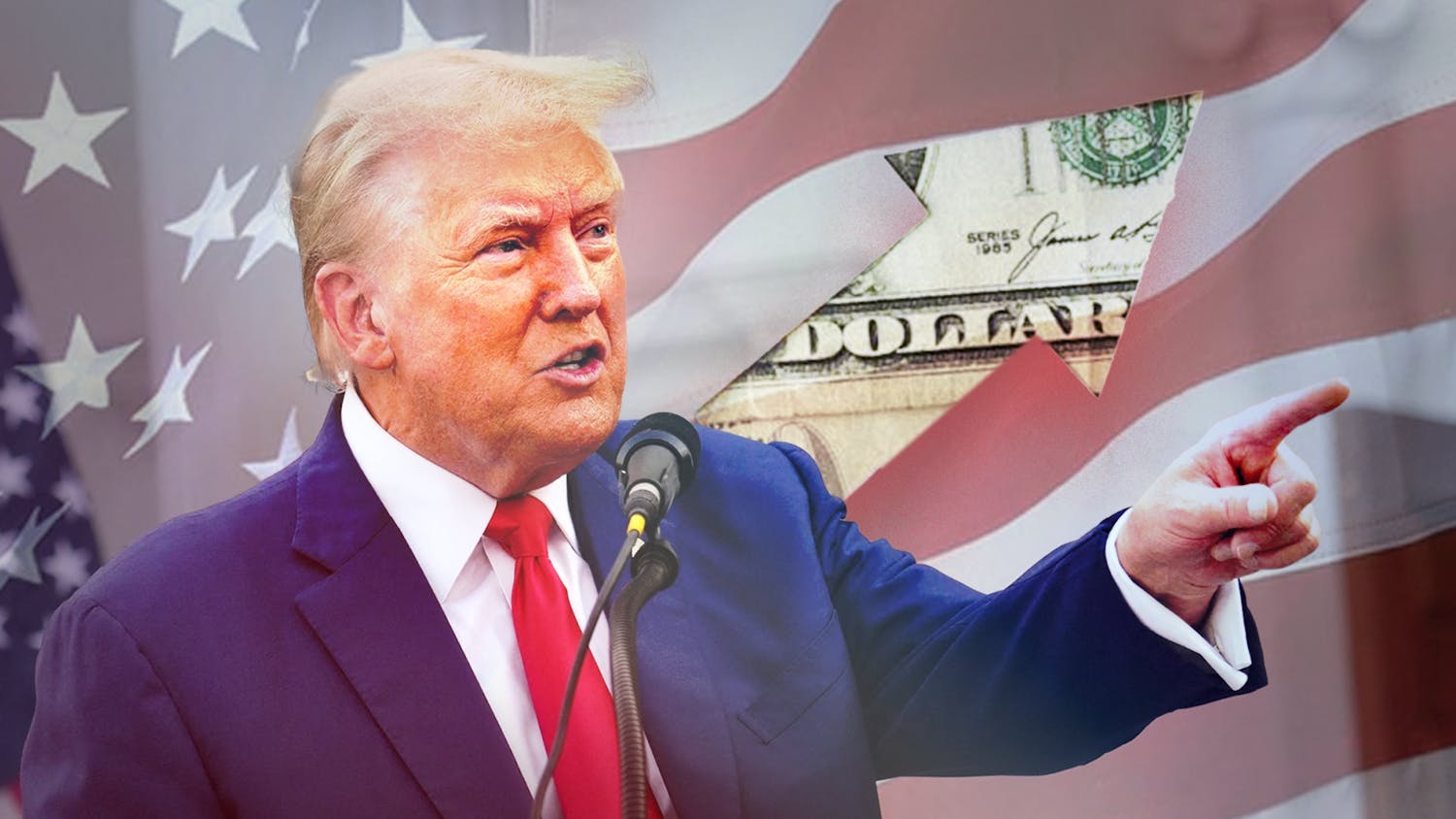I know many of you are disappointed you did not win the $640 million Mega Millions jackpot over the weekend. Dreams of never working again, living the high life and naming UF after yourself are gone forever.
However, when I read that the winner will owe $161.7 million in federal taxes, it got me thinking about the injustice of Tax Day.
The usual response I hear from my progressive friends about the alternative minimum tax, lottery, gift, estate and other “not affecting me” taxes is that we should heap them on like ice cream. After all, the people earning the windfall did nothing to deserve that money. Therefore, it should be redistributed to everyone, since random chance gave them an unfair lump-sum payment.
To look at why this mentality penalizes the top 10 percent way more than the top 1 percent, let’s compare the three winners of the Mega Millions lottery to a surgeon making an annual income of $500,000.
To make the comparison easier, let’s assume that the doctor and the lottery winners all live in New York City. The mega millionaires will owe a total of $199.5 million in taxes. Assuming a combined tax rate of about 12 percent in NYC and a federal income tax rate of 35 percent, the doctor takes home $286,000. One also has to account for about $6,000 in Social Security tax and maybe $6,000 in Medicare taxes under the new tax rules passed by the Obama White House, leaving our surgeon with $274,000 in take-home pay.
If we assume $5,000 per month for rent/mortgage and $5,000 per month for private school tuition for two children, the surgeon’s salary is down to $154,000. Take away another $5,000 per month for food costs for the whole family and $5,000 per month for insurance costs, transportation, utilities and miscellaneous expenses, and we are down to $34,000 per year to spend lavishly.
Some will say that the problem with my example is that the lottery winners should pay 75 percent in taxes and the doctor should be allowed to just pay 25 percent. The issue is not the progressiveness of the tax code, but that it takes a huge bite out of the merely affluent, while leaving the true oligarchs in fine shape. The lottery is a somewhat special example, but think of people like Steve Jobs, Bill Gates and Mark Zuckerburg. All of these men essentially won an even bigger lottery by creating incredibly useful products for the entire world to use. These guys probably had some of the best lawyers and accountants in the world characterize their incomes as long-term capital gains so they could get that 15-percent tax rate. Meanwhile, the surgeon is working 70-hour weeks transplanting organs and gets hit with the 35-percent tax rate.
Warren Buffett wants to increase the drastic difference between the take-home pay of money managers and heart surgeons. By raising income taxes to 39.8 percent, we would force real-world people who don’t drive Bentleys or shop at Tiffany’s to make tough choices like pulling their kids out of their preferred school, lowering malpractice insurance or moving to a cheaper residence. These can all be valid decisions, but they shouldn’t be forced by a change in the tax code.
The metaphorical lottery winners of the world pay a large amount in taxes, but they can afford the best help money can buy to legally avoid as much tax as possible. This reality will always be the case, and the rich will become better at dodging taxes as they increase.
It is clear there is a direct relationship between income tax rates and effort spent on not paying them. When the lottery winners die, their heirs will receive hundreds of millions, but they probably won’t pay the full 35-percent death tax because of their professional armies.
Meanwhile, the surgeon who saved up several million over a lifetime of tough, long weeks will have to fork over the full 35 percent above the $5-million exemption because that person was probably a lot more attentive to saving people’s lives than to their personal finances.
In life, we shouldn’t punish the lottery winners or the white-collar workhorses. Low taxes encourage entrepreneurial risk and create more social justice through long-term growth than any redistributive program.
At the rate Washington is spending money, I’m just glad income taxes aren’t already at 100 percent.
Travis Hornsby is a statistics and economics senior at UF. His column appears on Mondays.





